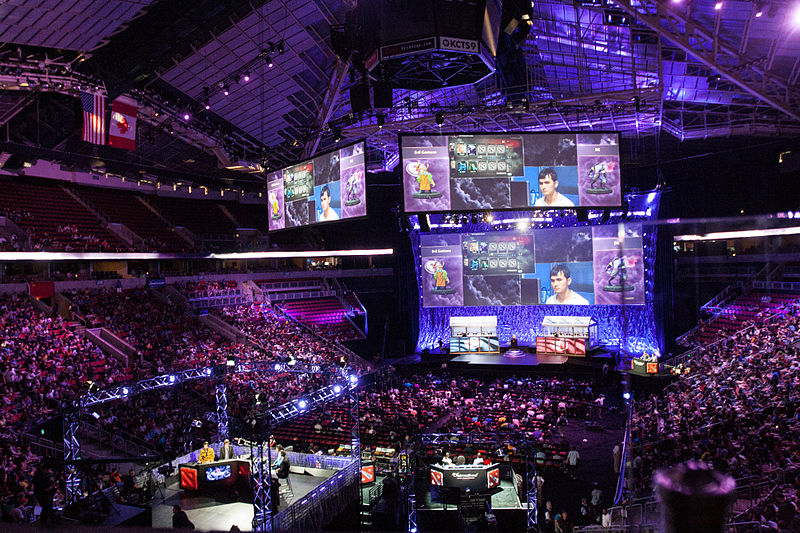Gaming plays a significant role in the tourism industry. It adds to the list of experiences one can enjoy in the area and attracts more visitors, which is why places like Virginia won big when casinos opened in major cities like Norfolk, Portsmouth, Bristol, and Danville. And though online gaming is a major part of the offerings at these establishments, it’s not the only nod to digital transformation that’s taking place in the types of gaming bolstering the tourism industry.
Today, we can’t mention this kind of entertainment without touching on esports. According to Precedence Research, the market for this spectator esports is growing rapidly, and its value is estimated to rise from $4.4 billion to $33.38 billion between 2022 and 2032. Millions of people tune in to watch teams throw their hats in the ring and play competitive video games like Fortnite, Apex Legends, and Overwatch 2. That global audience means esports offers so much financial potential in terms of advertising, sponsorships, and merchandise.
However, viewers do more than just stream esports tournaments—they also pay to watch these games in person, journeying to host cities to personally witness how events unfold. That’s led to the rise of a new kind of travel: esports tourism. Here’s more on why it’s becoming more popular by the day.
Improved travel experiences for viewers
One major reason esports tourism is on the rise is that people simply want to watch tournaments in person rather than streaming them from home. Similar to those who love to attend traditional sporting events, fans want to get in on the action and watch the pros do what they do best up close. In fact, research from CSL International and the Esports Entry Advisory reports that over 61% of respondents are willing to attend live tournaments because it promises a more dynamic viewing experience. Fans get to watch their favorite players compete, interact with fellow fans from diverse backgrounds, and even take the time to explore the host city where the event takes place. However, most fans cite game titles as the biggest factor determining whether or not they’ll travel to watch a game. That’s apparent in the stats for two of the most popular titles out there. In 2023, tickets for the League of Legends (LOL) World Championship at a 16,000-seat venue in Seoul sold out in minutes. Come April 2024, spots at the prestigious VCT CN arena in China for the VALORANT Champions Tour were gone in seconds, exemplifying just how much and far fans are willing to pay and travel to attend these tournaments.
Increased revenue for tourist destinations
Ticketing revenue alone can improve income for cities hosting esports tournaments, but they can benefit from so much more. Events alone require multiple personnel, from organizers to security staff, which creates more jobs. The arrival of thousands of spectators also boosts hotel and restaurant reservations, public transportation use, and visitor numbers at local attractions. Destinations are also likely to get more revenue per person rather than simply due to the sheer number of visitors, especially since many esports fans prefer to speculate on the outcomes of these events. Physical attendance can improve their chances of success, especially for more popular titles like LoL. Most expert LoL betting tips recommend viewers pair statistical analysis with physical observation to make better predictions. Spectators also need to employ intuitive strategies based on real-time changes in gameplay, which is something they can’t do optimally with the lag of live streams. With improved chances of success, these fans will have more to spend at a host city—something Rotterdam experienced when it hosted the first LoL European championship in 2019. After the event, its economy experienced a boost of almost $2.3 million from an 87% non-local audience.
Lucrative opportunities for players
The benefits of esports tourism extend to those who directly participate in the tournaments, themselves. These events, which are held in different cities every year, promise hefty prize pools, sponsorships, and prestige that allows teams to earn a more lucrative salary. That’s why professional esports players are willing to travel for a chance to win big—even if most game titles and events boast well-organized leagues that make it challenging to be eligible to compete in the first place. VALORANT’s qualification tips for the Champions Tour alone require teams to achieve “Contender” status by ranking Immortal 3 or higher. That’s not to mention aspirants need to qualify for the VALORANT’s highest in-game competition, Premier Contender, to even be considered for the event. Traveling to prestigious tournaments in other cities, regions, and even countries gives these players the opportunity to further a career that can see them earning up to $60,000 a year, which is why they make up a significant chunk of the increasing demand for esports tourism.
Feature image courtesy Sam Churchill on Flickr via CC BY 2.0






